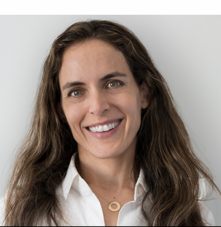| Microsoft Researcher Awarded 2022 ACM Prize In Computing |
| Written by Sue Gee |
| Sunday, 16 April 2023 |
|
Yael Kalai, Senior Principal Researcher at Microsoft Research and an Adjunct Professor at MIT, is the recipient of the 2021 ACM Prize in Computing for her work on cryptography. The ACM Prize in Computing was established in 2007 to recognize: "an early to mid-career fundamental innovative contribution in computing that, through its depth, impact and broad implications, exemplifies the greatest achievements in the discipline." The award carries a prize of $250,000, with its financial support provided by Infosys Ltd.
Kalai graduated from the Hebrew University of Jerusalem in 1997. After working with Adi Shamir at the Weizmann Institute of Science, where she earned her Master's degree in 2001, she moved to MIT (Massachusetts Institute of Technology), where she completed her PhD in 2006 with Shafi Goldwasser as her doctoral advisor. Both Shamir and Goldwasser have multiple awards, including the Turing Award, separately, and the BBVA Fronteris of Knopwlege awad, jointly, for their contributions to cryptography and now Kalai's own contributions have been recognized with the citation reading: for breakthroughs in verifiable delegation of computation and fundamental contributions to cryptography. The ACM expands on this explaining that Kalai has developed methods for producing succinct proofs that certify the correctness of any computation. The verifiable delegation of computation method: enables a weak device to offload any computation to a stronger device in a way that enables the results to be efficiently checked for correctness. Blockchain companies, including Ethereum, have used Kalai methods to certify transaction validity and thereby overcome key obstacles in blockchain scalability, enabling faster and more reliable transactions. According to the ACM, Kalai’s research has provided essential definitions, key concepts, and inventive techniques to this domain and cites her breakthrough work on the security of the “Fiat-Shamir paradigm,” a general technique for eliminating interaction from interactive protocols. This paradigm is extensively utilized in real-world applications including in the most prevalent digital signature scheme (ECDSA) which is used by all iOS and Android mobile devices. ACM President Yannis Ioannidis commented, “As data is the currency of our digital age, the work of cryptographers, who encrypt and decrypt coded language, is essential to keeping our technological systems secure and our data private, as necessary. Kalai has not only made astonishing breakthroughs in the mathematical foundations of cryptography, but her proofs have been practically useful in areas such as blockchain and cryptocurrencies. Her research addresses complex problems whose solution opens new directions to where the field is heading—focusing on keeping small computers (such as smartphones) secure from potentially malicious cloud servers. A true star all around, she has also established herself as a respected mentor, inspiring and cultivating the next generation of cryptographers.” CEO of Infosys, Salil Parekh, added: “We are pleased to see one of the world’s leading cryptographers recognized. Kalai’s technical depth and innovation of her work has definitely made a tremendous mark in this field and will inspire aspiring cryptographers." Kalai will be formally presented with the ACM Prize in Computing at the annual ACM Awards Banquet, which will be held in San Francisco on June 10.
More InformationACM Prize in Computing Recognizes Breakthroughs in Cryptography Related ArticlesPieter Abbeel Wins 2021 ACM Prize In Computing Scott Aaronson Winner of 2020 ACM Prize In Computing David Silver Awarded 2019 ACM Prize In Computing Ethernet Inventor Bob Metcalfe Receives 2022 Turing Award Goldwasser and Micali win Turing Award BBVA Frontiers Of Knowledge Award 2017 To be informed about new articles on I Programmer, sign up for our weekly newsletter, subscribe to the RSS feed and follow us on Twitter, Facebook or Linkedin.
Comments
or email your comment to: comments@i-programmer.info |
| Last Updated ( Sunday, 16 April 2023 ) |



